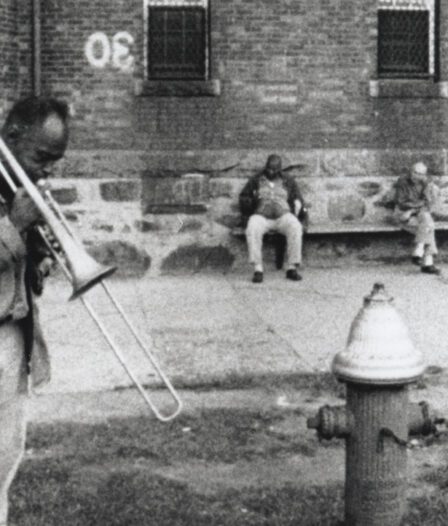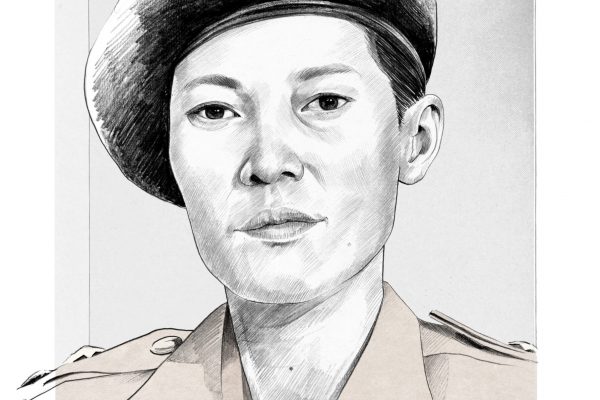Eradicating bear bile farming amid the COVID-19 pandemic
Jill Robinson, animal rights advocate and founder of animal protection group Animals Asia, shares her thoughts on animal welfare amidst the COVID-19 pandemic.
Around the world, governments and hospitals are grasping to find effective treatments for rapidly spreading COVID-19. We’ve seen recommendations for high doses of Vitamin C, hydroxychloroquine (usually used to treat malaria) and various herbal remedies.
But a new recommendation in China has drawn scrutiny from animal rights activists: The China National Health Commission recommended Tan Re Qing, a Traditional Chinese Medicine (TCM) formula containing bear bile powder, as a viable treatment.
The exploitative practice of using bear bile in TCM is an issue close to Jill Robinson’s heart. After moving to Hong Kong in the 1980s, Robinson, who is a veterinarian, founded Animals Asia in 1998 with a purpose of ending animal cruelty across the region.
It started with a mission to combat bear bile farming in China, where practitioners extract bile from live bears. In TCM, bear bile is believed to treat ailments like gallstones, liver disease and hemorrhoids. As such, the raw bile can fetch up to US$24,000 per kilogram, according to a 2013 report by The New York Times.
In 2000, Animals Asia established the world’s first sanctuary for rescued bears, China Bear Rescue Centre in Chengdu, in Sichuan province, followed by several more sanctuaries across China and Vietnam. To date, the organisation has rescued 600 bears, including endangered Asiatic black bears (also known as moon bears), sun bears and brown bears. Having expanded over the past 22 years, the foundation also works to end the consumption of dogs and cats, as well as abusive animal practices in tourism industries across Asia.
Robinson has since become a leading authority on the bear bile industry and animal cruelty in Asia. In 1998, she was even awarded an MBE by Queen Elizabeth in recognition of her devotion to animal welfare.
Speaking with Ariana, Robinson discusses recent recommendations to use bear bile as a treatment for coronavirus, the dangers of consuming bear bile, and her ongoing work to end bear bile farming in Asia:
Ariana: China’s National Health Commission recently recommended injections that contain bear bile powder as a treatment for coronavirus. What are your thoughts?
It is disturbing to learn that wildlife products are being used to treat a deadly virus that appears to have originated from wildlife. Traditional medicine has a rich tapestry of history and culture, and the core discipline is in harmony with nature.
Such medicines should be healing without harm. In addition, the company that is using this bear bile treatment, Chinese traditional medicine-manufacturer, Kaibao Pharmaceutical, is also in the final clinical stages of research and production of a synthetic, mirror image alternative to bear bile. We encourage the urgent escalation of this product instead.
Ariana: What about China’s recent ban on wildlife trade in light of COVID-19? Will it be effective?
We are seeing some very proactive solutions in terms of closing wildlife markets. While disappointingly, some markets are opening again as the situation relaxes, we are also hearing that they’re being reported by the public and then forcibly closed down.
Shenzhen has gone one step further and banned the sale and consumption of dog and cat meat from 1 May. In the words of the Shenzhen city government: “Dogs and cats as pets have established a much closer relationship with humans than all other animals, and banning the consumption of dogs and cats and other pets is a common practice in developed countries and in Hong Kong and Taiwan.”
Sadly, there are exceptions being made for certain wild animals. Some species are still allowed to be “utilised” within scientific research and medicine. Those animals have yet to be formally identified but may inevitably include the species of bears currently farmed for their bile.
Ariana: COVID-19 is a zoonotic disease, meaning it was transmitted from animals to people. Given that, are there any dangers in consuming bear bile?
Absolutely. Australian Hepatobiliary Surgeon, Rob Bohmer, actually did a study on it. He found that consuming bile poses a “significant risk” to human health due to bacteria and malignant cells in the bile. This is a major public health hazard – not only for people consuming bear bile but also for the farmers who interact with the bears daily.
Dr Bohmer is amongst many doctors sounding the alarm. Dr Nguyen Xuan Huong, who is chair of the Traditional Medicine Association of Vietnam, has also expressed grave concerns about bear bile poisoning as it can cause fatal liver and kidney damage.
We’ve seen this in our own work. The bears we have rescued often present serious diseases and have contaminants in their bile.
Ariana: In what other ways has the COVID-19 pandemic affected your work?
In China, we have seen supplies drying up – especially masks, sanitisers and hand soaps, as well as food for our bears and staff. These last few weeks have been truly dreadful, but our team has been brave and resourceful. This has really hit us financially too – prices for equipment are going through the roof. It will take us a long, long time to recover.
Ariana: What is the current situation for bear farming?
Tragically, thousands of bears are still confined in cages on bear farms in Asia. They are most often farmed for their bile, which is used in TCM but could easily be replaced by herbs and synthetics.
While their plight is a long way from being solved, we have seen a significant and encouraging shift in attitude towards bear farming overall. People who visit our sanctuaries in China and Vietnam often leave determined and passionate to help.
Since I moved to Hong Kong in the 1980s, I have witnessed the rise of animal welfare in Asia, especially in China where there are now over 200 passionate animal welfare groups working to protect domestic and wild species. We work with most of them, often organising symposiums and conferences for all to attend. We believe this creates win-win opportunities that benefit animals and people alike.
Ariana: What’s been the highlight of your Animals Asia career so far?
It has to be when the Vietnam government agreed to collaborate with us to end bear bile farming by 2022. This is a landmark decision and we are thrilled to work with the government on achieving this goal. Currently, there are 610 bears on 206 farms, according to government figures.
If all goes to plan, three years from now, there will be zero bears in captivity but this will take a significant amount of planning, management and fundraising. At least one new sanctuary will need to be constructed to house the remaining bears rescued from farms. It’s an exciting and nerve-racking time but we are ready for this challenge, knowing that the goal for which Animals Asia was founded has finally come to fruition.
Ariana: What else keeps you motivated?
Kevin and his friends… Kevin is a three-legged “smiling” bear who, among his friends in China and Vietnam, keeps us all inspired to continue our work until bear farming is no more.
Before he moved into our Chengdu sanctuary in 2006, Kevin lost his front left leg after getting caught in an illegal trap, but he keeps smiling!
As people often notice with their dogs, bears often “smile” when they’re happy, and their mouths deliberately turn up into a grin. The sight of our bears running out into their grassy enclosures, foraging for food, swimming in pools or playing tag with their friends, is all the motivation we need to continue on our mission.
The article has been edited for brevity and clarity.
Stay informed and inspired with Ariana’s weekly newsletter.



